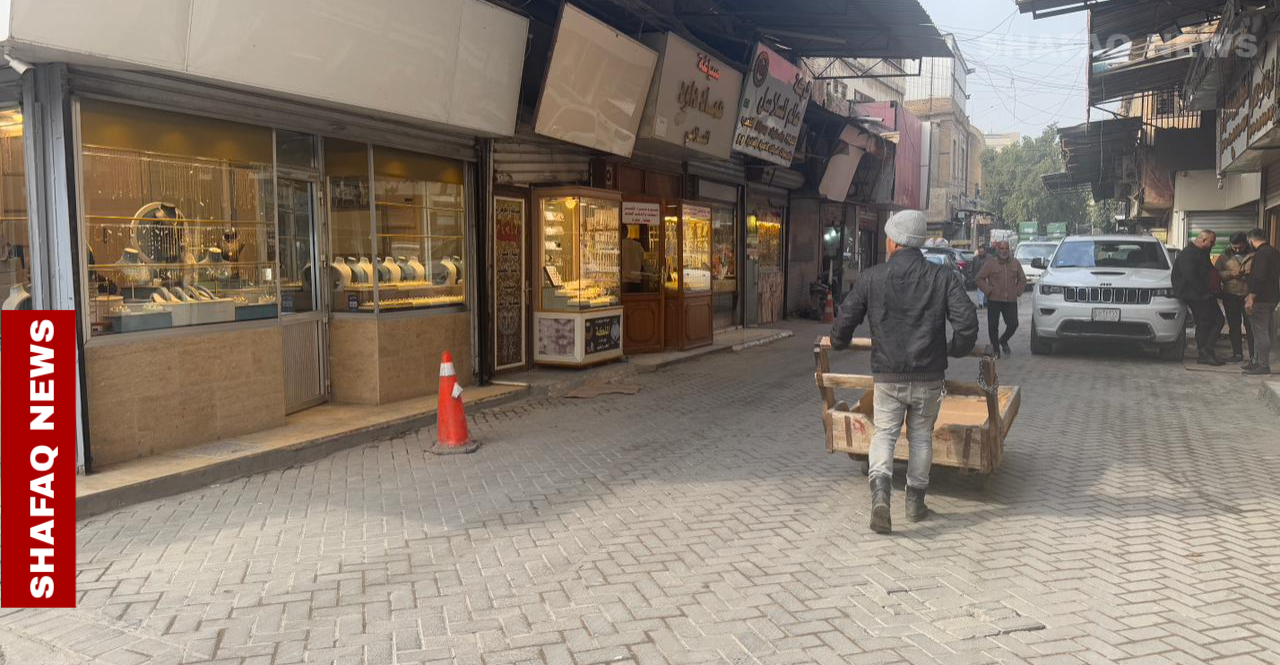Shafaq News/ Baghdad’s Al-Nahr Street, once a hub for goldcraftsmanship led by the Sabian community, now suffers from a decline in localcraftsmanship, replaced by imported gold.
According to historian Mehdi Al-Badiri, Al-Nahr Street,known historically as “Girls’ Street” (Al-Banat Street), earned its name duringthe Abbasid era due to its proximity to the Tigris River, where boats ferriedvisitors across from Karkh to Rusafa. By the 1970s, it had become a flourishinggold market, with nearly 86 shops primarily operated by Sabian craftsmen.
The Sabians, famous for their expertise in this field,dominated the craft for decades. Goldsmith Hilal Muhalhel explained thatcrafting gold became a hereditary profession for the community, enabling themto perfect techniques passed down through generations. “We mastered the art ofengraving intricate patterns on jewelry,” he noted.
However, the golden age of Al-Nahr Street began to fadeafter 2003, as violence and kidnappings forced many Sabian craftsmen to fleethe country, leaving only six in the area today. This situation along with theinflux of imported gold has severely impacted the local gold industry, asexpressed by trader Ammar Abdul Zahra, “the dominance of imported Gulf andTurkish gold has overshadowed Iraqi craftsmanship.”
Modern gold casting machines from Turkiye and the demand forGulf designs have shifted Al-Nahr Street’s focus to wholesale gold trading.According to Abdul Zahra, newly constructed complexes now cater to bulk buyersfrom provinces like Basra, Karbala, and Najaf, with wholesale transactionsranging from 10 to 100 kilograms of gold.
Goldsmiths and traders who remain in Al-Nahr Street holdsuccessive governments accountable for neglecting local artisans. “The lack ofsupport for creative talents has driven skilled craftsmen abroad, taking theirexpertise with them,” Abdul Zahra stated, with him and others believing thatreviving the local gold industry requires support for traditional artisans.

